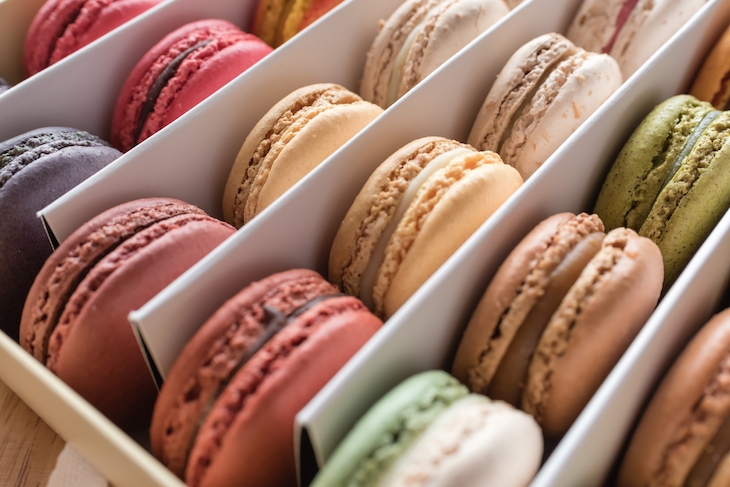The cave house next to ours is let out to weekly renters. A green-eyed German with a ponytail came out of his cave to stand on his terrace and look for the Blood Moon at the same time as I stood 30 yards farther along the ledge to look. There was no moon to be seen and we spread our arms and opened our palms to each other in that universal expression of frustration. I knew he had green eyes because earlier I had knocked on his door and presented him with two boxes of pastries, which I had been given, but Catriona cannot eat pastries because she is allergic to eggs, so we passed them on. I’d had a few drinks and was maybe a bit tousled and my eyes were probably glazed. As I stood on his doorstep and mutely presented him with the enormous patisserie boxes, the green German eyes registered first surprise, then gratitude, then as they focused on mine, benevolent pity.
He and his partner left on Saturday morning and were replaced in the afternoon by two sweating silent men dragging designer luggage behind them. In the evening, on my return from the village rock concert featuring the incredible Johnny Gallagher, we returned to our grotto via a narrow cliff path which passes beneath their terrace. Catriona says I fell over ‘at least 25 times’ going up the cliff, and three times in ten yards as I passed in front of this pair of gents reclining on their Lafumas and silently sipping their rosé under the stars.
Our grotto house is a tiny one-up one-down affair but wonderfully cool inside and one perches on the lavatory next to a gnarled wall of volcanic rock pitted with nooks and crannies. Instead of turning round to reach for the toilet roll standing on the cistern, I thought it might be more convenient to stuff the toilet roll in one of these holes. Alas, Catriona deemed the idea too unconventional and the roll is now back in its usual position. Although minute, the kitchen area has been recently modernised with multicoloured wall tiling blended artistically with the natural rock, and fitted with the most up-to-date electrical sockets and switches: an incongruous juxtaposition of ancient and modern that makes me wonder what the troglodytes of 1,000 years ago would make of it all.
So far our evenings have been spent at the table on the rock-ledge garden reading by candlelight while having lumps bitten out of us by tiny, lighter-than-air mosquitos. It’s like being viciously attacked by airborne dandelion seeds. Normally if mosquitos are noticeable or felt in the evening, I accept a few bites without complaint as a sort of countryside tax. The rigmarole of applying repellent strikes me as over the top. But these sods bite like farm collies, drawing blood, and causing elephantine deformities of the limbs. So I hold the paperback open as near to the candle flame as possible with one hand, while reaching down to rub the latest atrocity on my calf or ankle with the other.
Since coming up here, I’ve been reading George D. Painter’s two-volume life of Proust, acclaimed on the front cover by the depressed alcoholic critic Philip Toynbee as: ‘One of the great English biographies of any time.’ Writing in the late 1950s, George Painter doesn’t beat about the bush. Marcel Proust’s descent into the Cities of the Plain in his mid-twenties renders him an ‘invert’; or occasionally, and even worse, a ‘pervert’, and the biographer uses the terms promiscuously and with obvious relish. Nevertheless, as elderly ladies in Edinburgh tea-rooms are said to famously say, Mr Painter is a thorough, and thoroughly erudite, and often witty companion, who adores his subject in spite of these moral reservations about Proust’s homosexual nature. To date, the three of us together have doggedly ascended every glittering rung of fin-de-siècle Parisian society until (by the end of Chapter 9) we now find ourselves moving effortlessly through dazzling, electrically lit salons among dukes and duchesses, princes and princesses, cocottes and boulevardiers, and falling in and out of love, and fighting absurd duels, and weeping inconsolably at the slightest undeserved criticism or the beauty of a rose.
And apart from the occasional evening off to get hammered in a 21st-century village in the south of France, that is where I have been each evening of this past week — strolling about in 1890s Paris with those two, because once you begin to come to terms with George D. Painter’s big-head style, and his insulting, or perhaps expedient epithets, it dawns on you Philip Toynbee probably isn’t that far out.







Comments